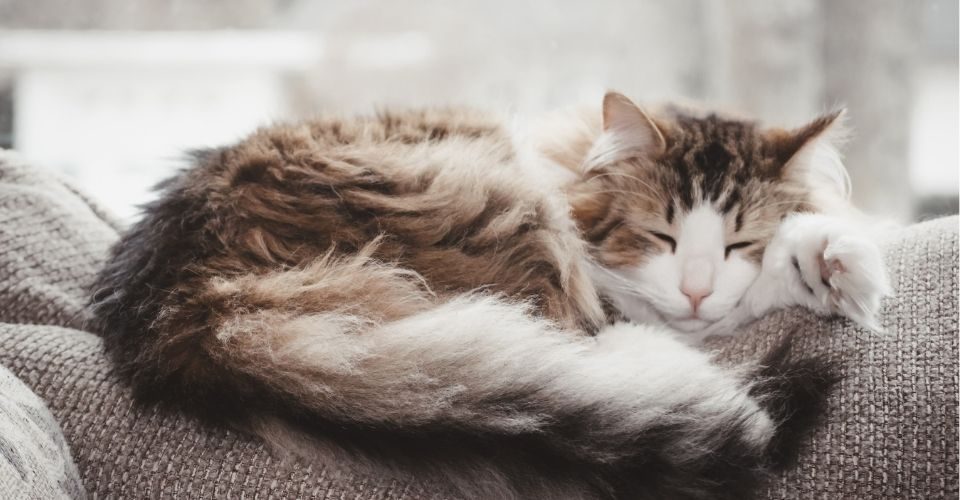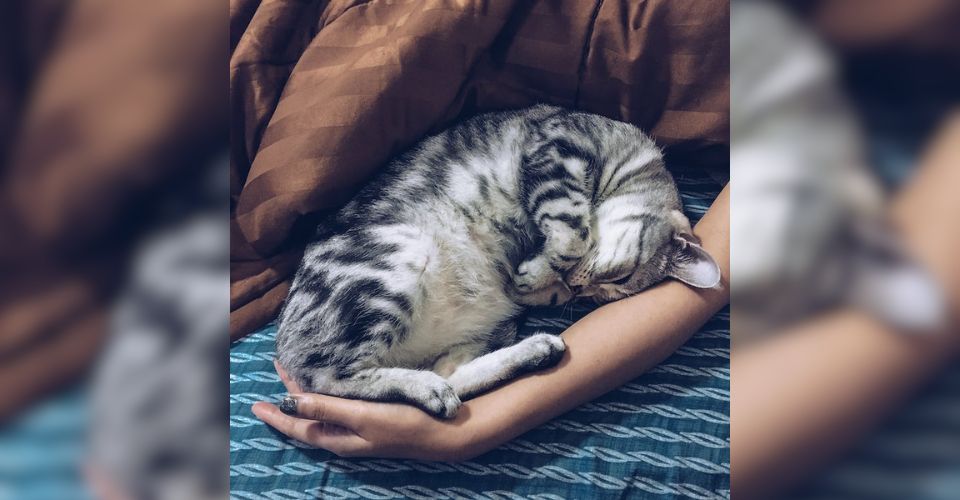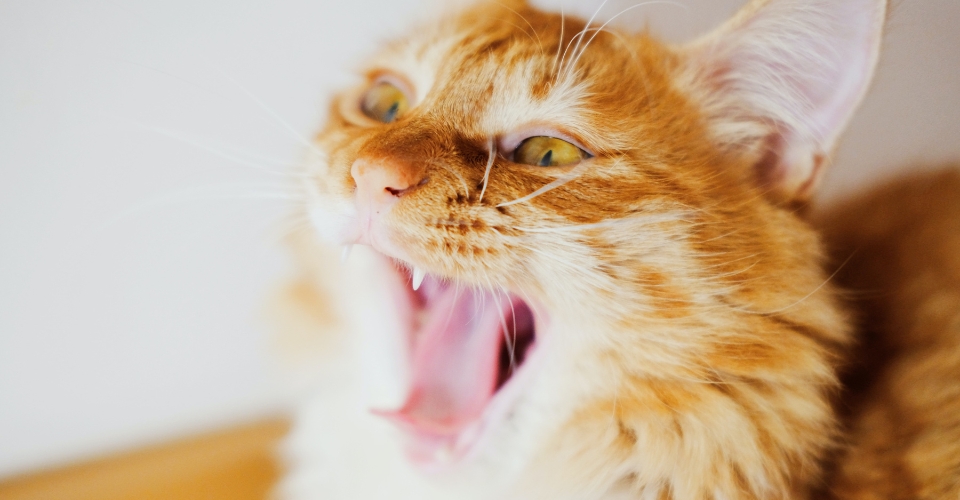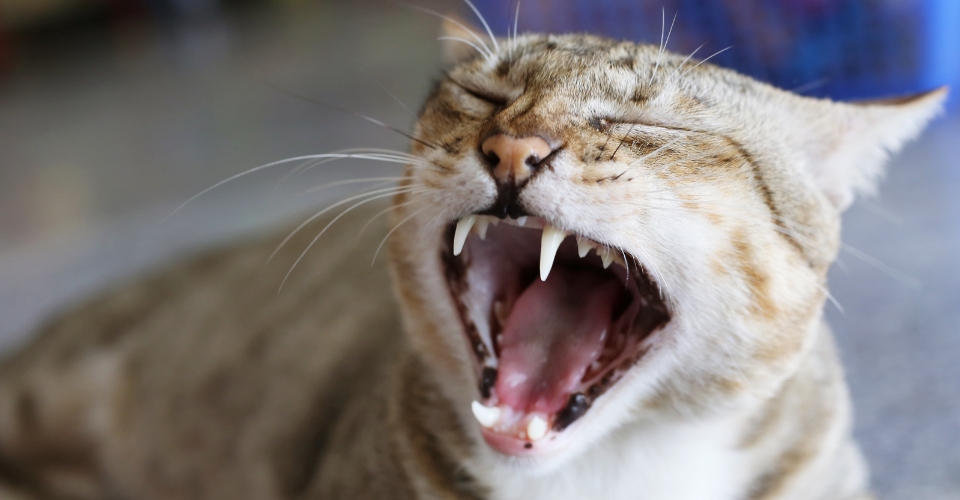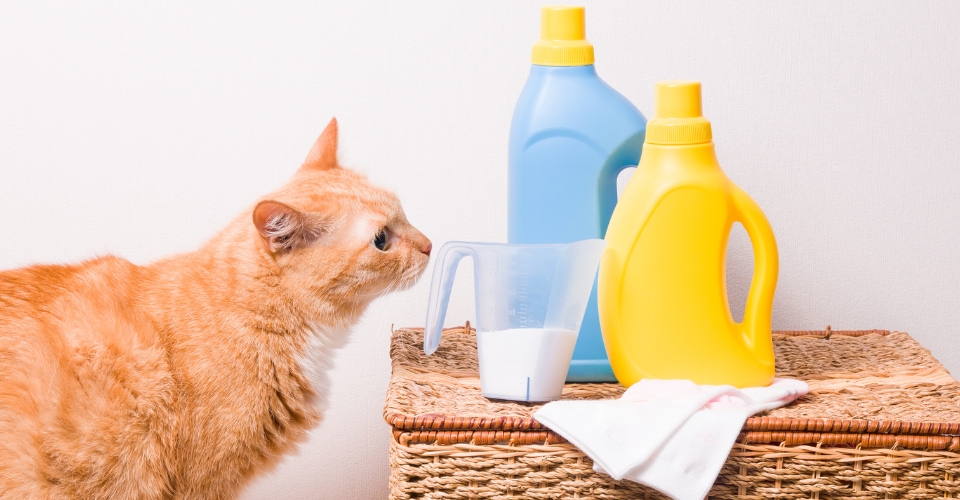Cats make a couple of sounds, varying in tone and intensity, each as a means to communicate something different. The communication could either be for other cats or their humans. A cat hissing may mean that she feels threatened, while a cat purring may indicate her affection towards you.
While most people are familiar with such common sounds, they may be startled if the cat makes a groaning noise when sleeping. The thing is, groaning is another word of the feline language, and you need to prepare yourself to increase your vocabulary.
Why Does Your Cat Make Groaning Noise When Sleeping?
Cats speak via the myriad sounds they make, communicating their feelings of joy, pain, anger, fear, and anxiety. They also rely on vocalization for saying hello or seeking food and attention. The groaning is just one of these sounds; frankly, it could signal several things.
Some of the harmless possibilities include her enjoying the sleep and having a dream or snoring. The latter, less common in the feline world, is noticed in bulky kitties.
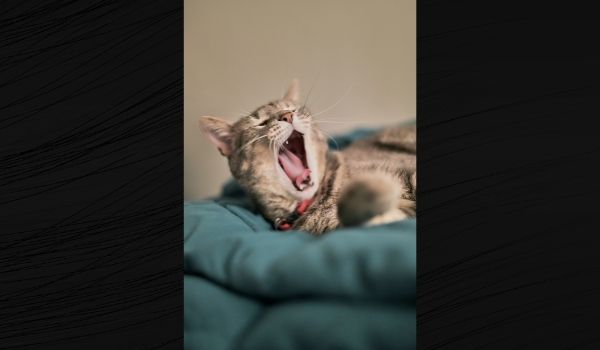
A groan that should warrant concern and immediate consultation with the vet could be because of an underlying health issue. Some of the possible health concerns, making your cat groan in her sleep, range from a breathing problem to more serious polyps and even a tumor in her nasal passage.
As a responsible pet owner, familiarize yourself with your cat; understanding her daily routine, likes, dislikes, and patterns can help identify something abnormal. If you notice anything that does not feel right, pay attention, consult your vet and get a thorough check-up to rule out possible health issues.
Taking a Closer Look at Why Your Cat Groans When Relaxing
As you spend time with your pets, you develop an understanding of their moods and the meaning behind many of the sounds they make. If you are still learning about feline behavior, discussing your concerns with a registered vet and seeking guidance to better address the needs of your dear cat can be a great way to deal with early pet owner anxiety.
Below we discuss in a bit of detail what it means when your cat makes a groaning sound in her sleep.
1. Deep Sleep
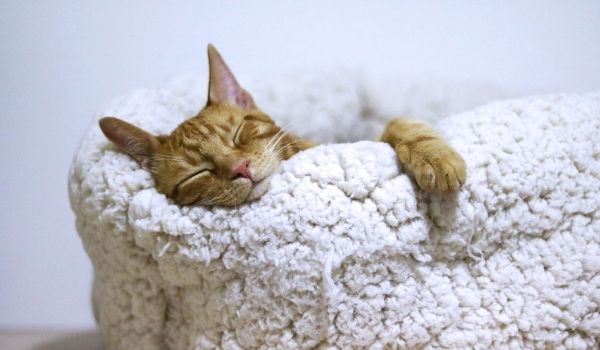
Cats sleep an average of fifteen hours during a day and depending on the breed, the duration may extend to 20 hours a day. Most sleep comprises quick cat naps, where the cat makes room for a quick power booster while doing anything. It means she could be napping while sprawled comfortably over a sofa seat or in a stretched-out posture by the wall.
Each of these naps has alertness in common, where the kitty may spring into action at slight provocation. These naps are interspersed with cycles of deep sleep, followed by a doze, going on and on. While in deep sleep and relaxed, the soft palate of cats is also relaxed, causing cats to make groan-like sounds.
2. Cat Dreams
During deep sleep, besides replenishing their energy for the day, cats happen to have dreams, just like humans. These could be about anything, possibly inducing some action as they see themselves chasing a mouse or engaged in some other fascinating/terrifying activity in their sleep.
So, as a result of these actions, supposedly taken in their dream or simply because they are in a deep sleep, the cat can make a groaning sound when sleeping. For example, she may be territorial in her dreams, and since cats groan while being territorial, the same can also happen in her dreams.
A word of caution here, monitor your cat while she sleeps to prevent her from tripping or falling on a hard surface.
3. Snoring
Most of you would say cats do not snore. Well, they do snore. It is just that it is a lot less common among felines than in the dog species. And it so may happen that the sound you mistook for a groan was actually a snore. Why snoring then, you may ask?
The common reasons a cat snoring may include a brachycephalic kitty, whose short nose may not offer enough air otherwise, and the slight effort required to meet the needs makes the process noisy.
Obese cats may also be susceptible to snoring during their sleep since their nasal passage is under pressure to provide air for the huge body. An uncomfortable sleeping posture or an underlying health problem may also result in the loud noise you hear.
If you notice something off about your cat, or even if these snoring noises make you concerned, consult your veterinarian for professional advice.
4. Breathing Issues
As discussed previously, cats could make a groaning noise in their sleep because of difficulty in breathing. The inconvenience arises, yet again, because of several reasons, such as something getting stuck in their nose, an injury, fever, trauma, infection, genetic disorder, or pain. Consider that sometimes the breathing issues may also be triggered by some of the medication you give them to treat another health problem.
Your best catch is to detect that your cat is facing some difficulty in breathing, causing the strange groaning sound in her sleep. A care regimen could then follow up, starting with arranging a detailed check-up with the vet and looking for what best works for your cat.
5. Other Health Problems
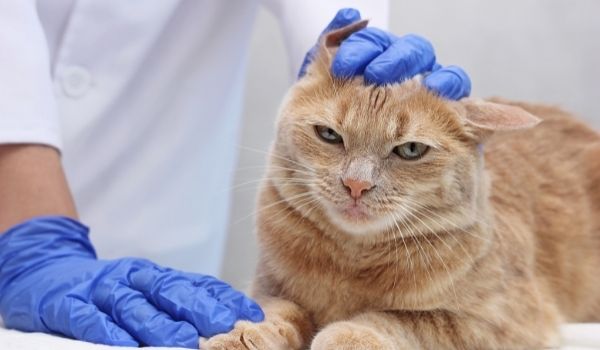
Besides developing some breathing problems due to obesity or some mild health issue, the cat may be making groaning sounds in her sleep because of a grave health issue. Typically, if she’s only recently started making the noise, it could be a minor issue that still demands a visit to the vet.
But, if it has been a while, you need to get her checked for the presence of polyps. Though benign, they still obstruct the air passage and may need to be removed, depending on what the vet thinks is the best solution. In worst-case scenarios, it could also be a tumor, causing problems for the kitty.
Issues leading to bloating or an enlarged belly, such as liver-related health problems, may also lead to these sounds. In such cases, you would also be able to notice other physical signs and rush your beloved pet for a medical examination.
Should I Wake My Cat Up If She Groans in Sleep?
It may not be necessary. By and large, a cat groaning in her sleep is normal and doesn’t warrant immediate attention. Check your cat to see if she is sleeping in an ordinary position or if she is lying in an irregular position. You can change her sleeping position if you think the sound is produced due to their erratic position.
But sometimes, cats make a groaning noise while asleep due to pain or a health issue. If you suspect that it is because of pain, health, or your cat experiences difficulty breathing, you can wake her up.
Final Word
It is pretty normal for cats to make different sounds in their sleep, ranging from moaning and snoring to squeaky sounds. So if your cat makes groaning noises in her sleep, review the other patterns, and see them in the context of a recent infection or medication you may be giving. Since there could be many different reasons for the behavior, it is wise to discuss it with an experienced vet to remove any doubts and rule out any serious issues.
Establishing a routine for medical visitation can help you sort out such worries. By any means, if you do believe that everything seems ok on the surface, but you still have your doubts, you better get her an examination than worry about it all the time. After all, it is better to be safe than sorry.
Keeping an eye on their patterns can also guide you to make better judgments. Kittens and older cats sleep longer than teens and adults, but if you notice an overall lethargy accompanying them, it may be a premonition for a loss of cognition, a common condition among older cats.

